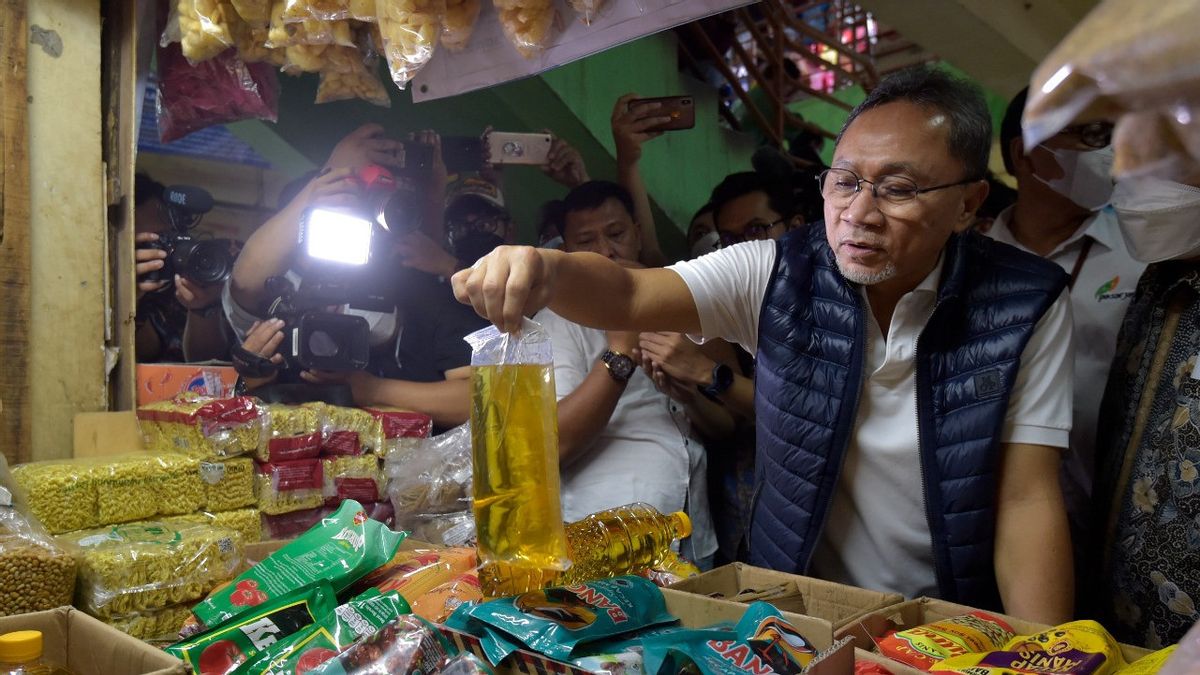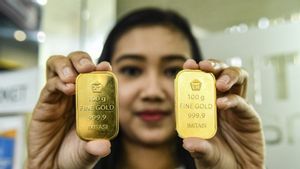JAKARTA - Minister of Trade (Mendag) Zulkifli Hasan (Zulhas) continues to encourage the acceleration of exports of crude palm oil or crude palm oil (CPO).
This is aimed at boosting the price of fresh fruit bunches (FFB) of oil palm.
"If exports are smooth, everything is ready to run smoothly, then factories can empty their tanks. If they are empty, they will fight to buy FFB," he said at Ciracas Market, Jakarta, Tuesday, July 5.
Based on data from the Ministry of Trade, as of July 4, 2022, the realization of exports of CPO, RBD Palm Oil, RBD Palm Olein and Used Cooking Oil (UCO) for the acceleration program through the SIMIRAH DMO scheme was recorded at 1,319,567 tons.
Of this number, only 36 companies have realized 842 PE with a volume of 885,500 tons or 65.91 percent. It was recorded that there were 434,067 tons of unrealized export volume.
"Yesterday, only 65 percent of the export permits have been granted. There are still some that have not been sent because of problems with ships, there was a pause yesterday when they were prohibited (exports)," he said.
Meanwhile, export approvals through the Flush Out scheme have been granted to 60 companies of which there are 536 PE with a volume of 1,092,890 tons.
Of this number, only 39 companies have realized 177 PE with a volume of 645,327 tons or 49.51 percent. It was recorded that there were still 447,563 tons of unrealized export volume.
"The average is only 60 percent. So it's not finished yet, now we're speeding it up by increasing the scheme. Yesterday, DMO was 1:5, now it's 1:7. If it's packaged, we'll increase it to 1:1, so that the PE exports will run smoothly. " he said.
The policy of changing the domestic market obligation (DMO) for crude oil from 1:5 to 1:7 is the government's way of increasing the price of FFB for farmers, which is currently relatively cheap. Factories are also required to buy Rp. 1,600 per kg.
If the CPO stock is exported quickly, it is hoped that the company will absorb more and this will have an impact on increasing FFB prices.
"Because of that, maybe there needs to be an adjustment time lag. We hope the price will meet Rp. 2,000 per kilogram, Rp. 2,500 per lilogram, to Rp. 3,000 per kilogram," he said.
The English, Chinese, Japanese, Arabic, and French versions are automatically generated by the AI. So there may still be inaccuracies in translating, please always see Indonesian as our main language. (system supported by DigitalSiber.id)











